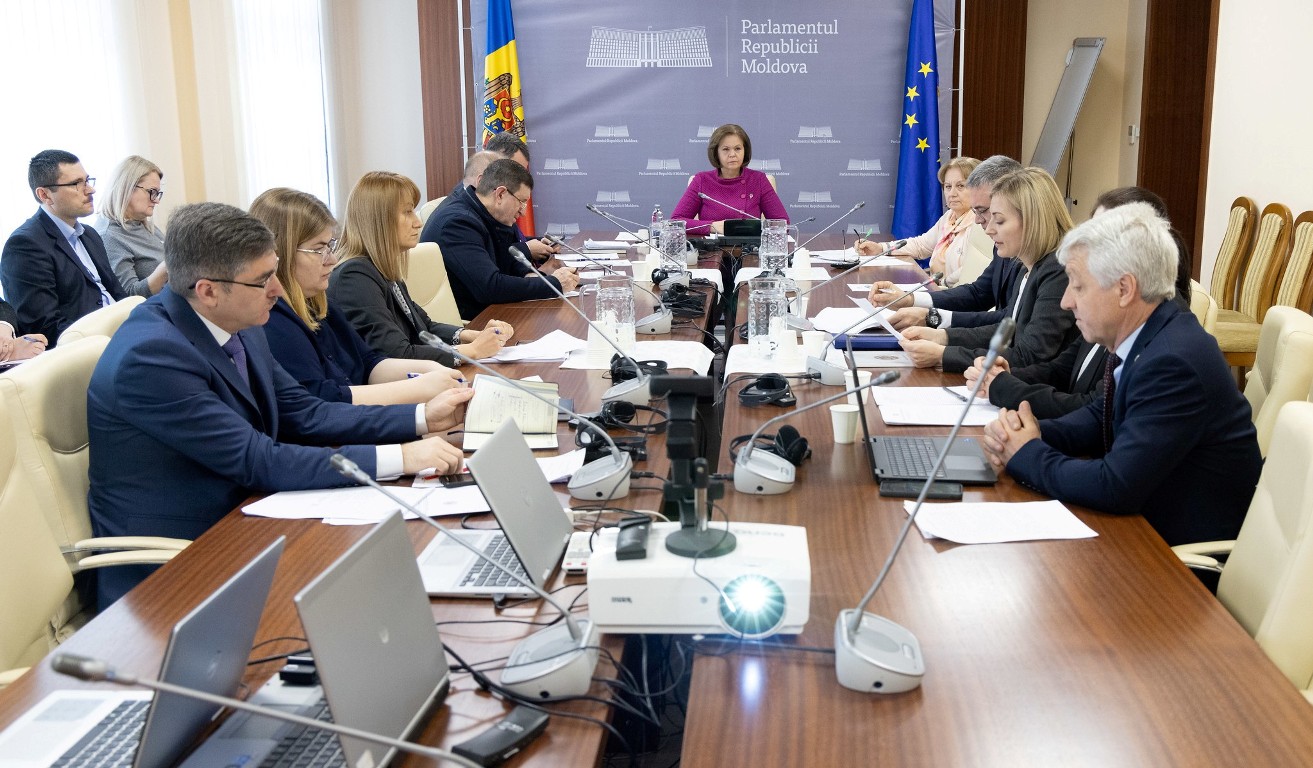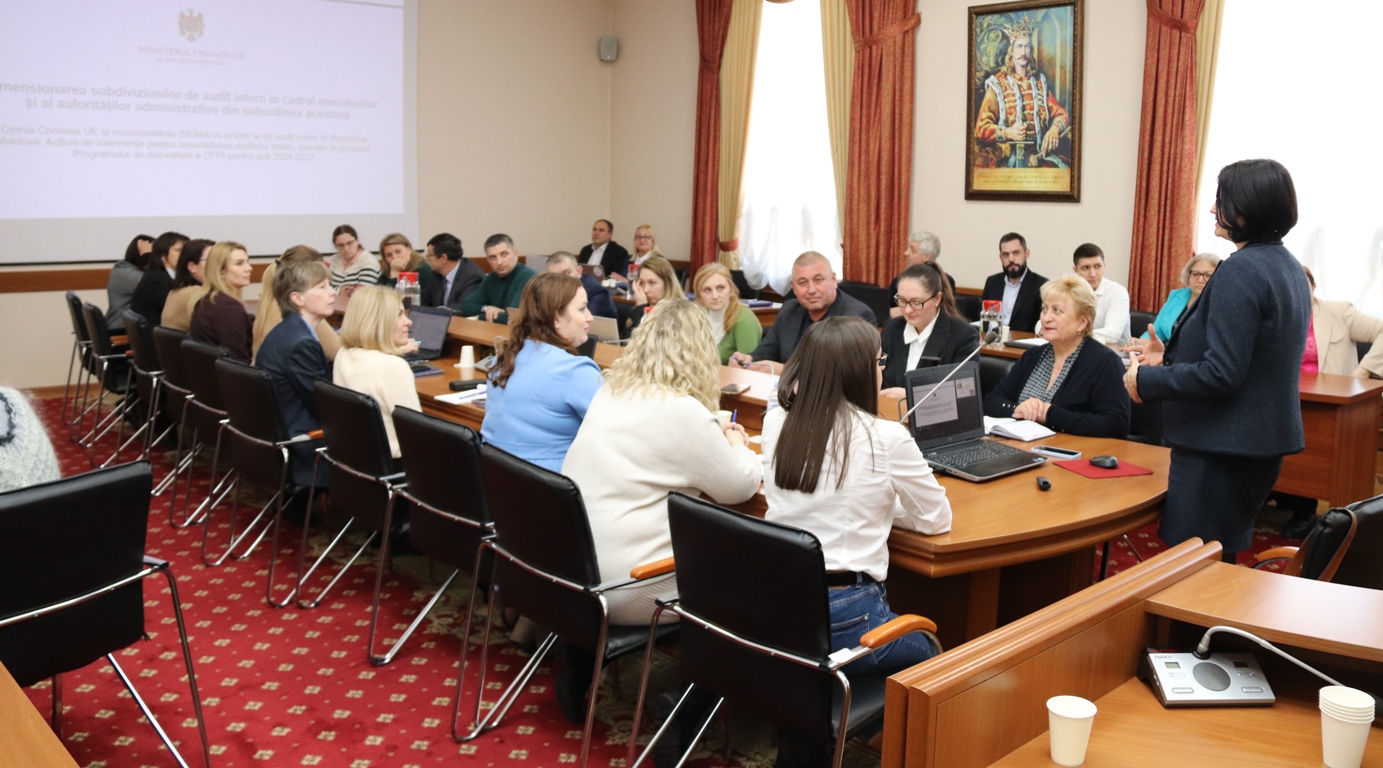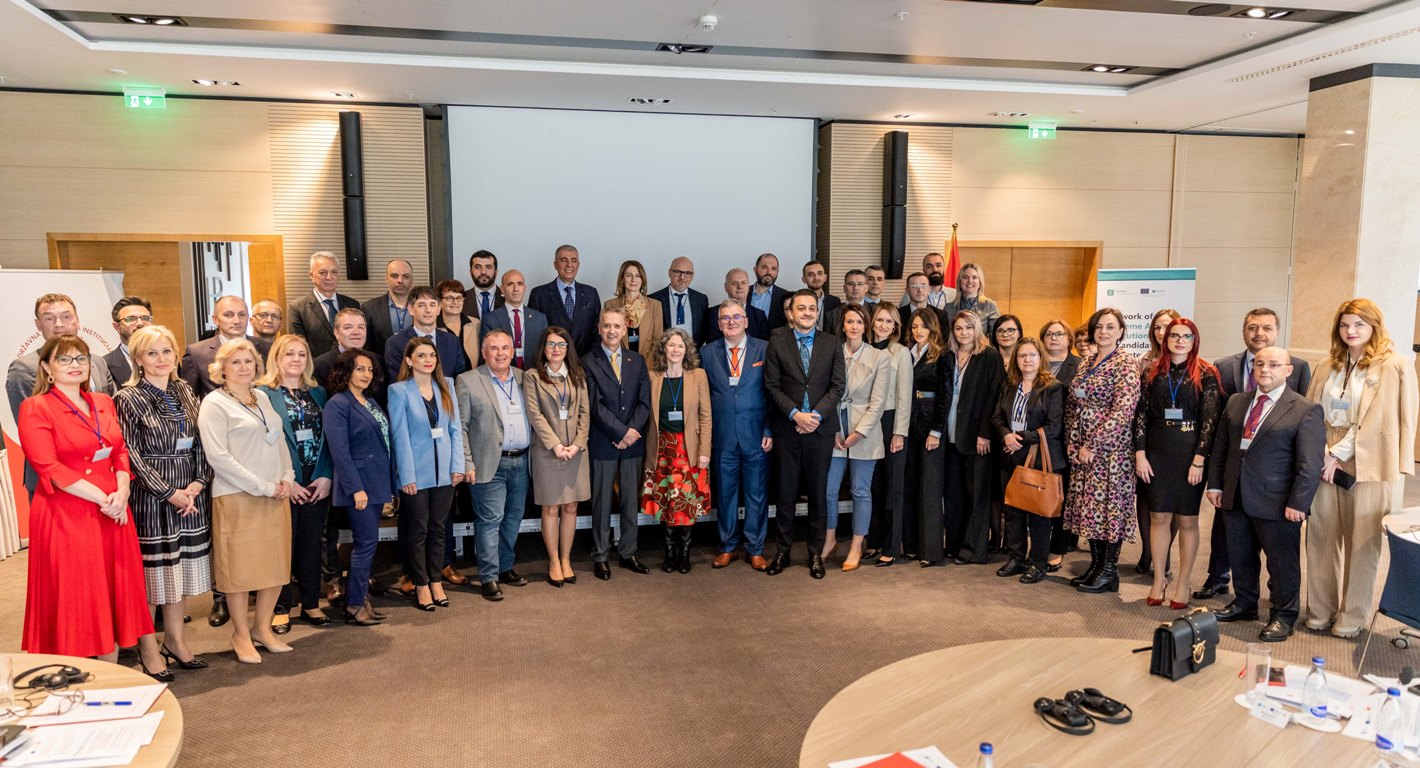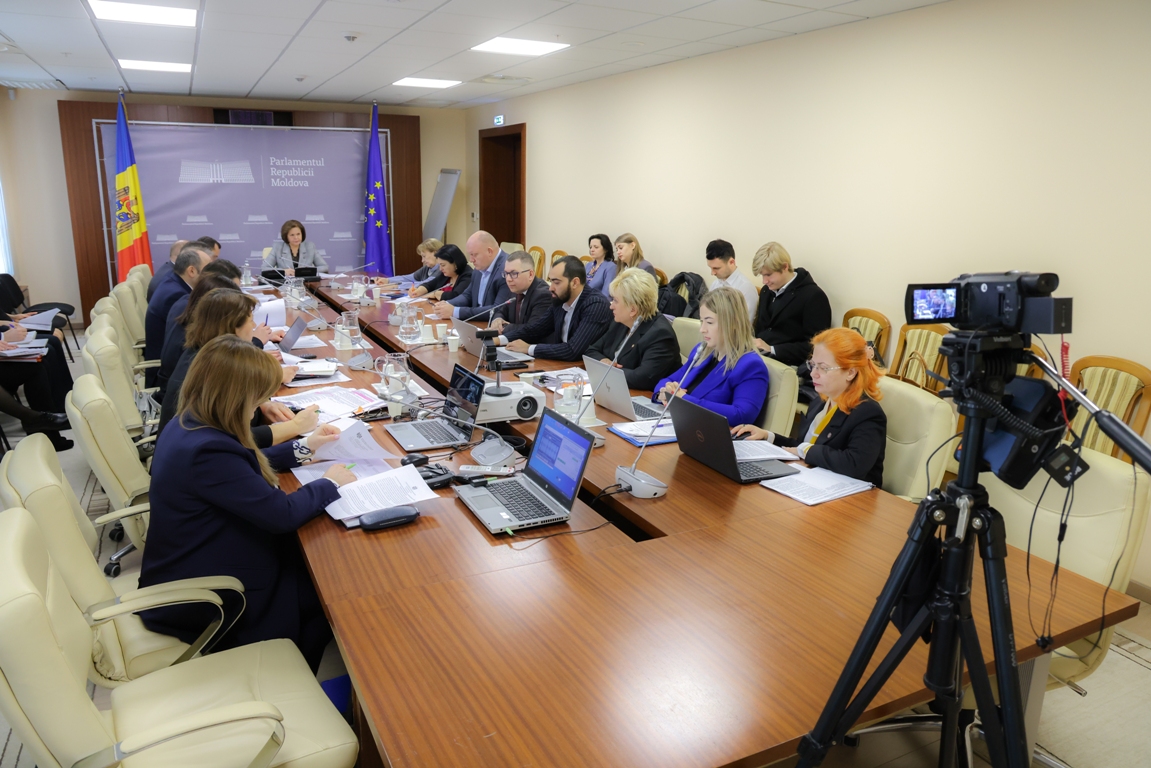.jpg)
The Court of Accounts of the Republic of Moldova (CoARM) presented today, April 12, within the Public Finance Control Committee, two Audit Reports: the audit report of the compliance of the administration of public revenues by the State Fiscal Service (SFS) during 2020-2021 and the audit report of the compliance of the administration of the fiscal facilities system in the years 2020-2021.
The CoARM’s auditors reported to the Parliamentary Committee on the results and findings of the audit which formed the basis for the formulation of the general conclusions as well as the recommendations submitted.
A first problem identified by the audit is the need to improve the regulatory framework affecting the fiscal facilities system.
Another identified problem relates to the lack of a methodological framework regarding the estimation of the budgetary costs of the facilities. From the total number of existing facilities, in 2020, 217 types of facilities were administered by the fiscal body. Of these, costs were not estimated for 141 tax facilities, although public policy documents outlined this task.
In the case of another 76 fiscal facilities, it was found that, in most cases, the costs estimated by the SFS, which amount to 2.3 billion lei, do not reflect the correct value of the facilities. In context, the audit identified significant errors in their reporting by the SFS.
Overall, the errors quantified by the audit amount to over one billion lei, being caused by unjustified increased calculations in some cases, and decreased in others.
A third important aspect concerns the lack of assessment of the effectiveness of existing facilities in terms of their value-added generation. In this context, the situation regarding the exemption from the payment of excise duties on nitrogen and oxygen produced on the territory of the country was cited as an example, a facility that was established by the Parliament without the approval of the Government and in the absence of a reasoned justification. This facility mainly benefited a certain economic agent, the annual costs being estimated at 9-10 million lei.
Another section of the Fiscal Code stipulated that all exemptions granted by the Ministry of Agriculture are coordinated with the State Fiscal Service, but there was no document establishing the way of cooperation between both authorities. As a result, excise tax exemptions were granted to some economic agents, worth almost half a billion lei, in the absence of coordination with the fiscal body.
The Court of Accounts noted that the state authorities have and report different information on the amount of the exemption. Thus, the SFS reported for 2020 the amount of 200 million lei, however, according to the data of the Ministry of Agriculture, the value of the facility was 666 million lei. For their part, the economic agents informed the Ministry of Agriculture that, in 2020, they actually benefited from exemptions worth 96 million lei. Thus, the real value of the facility that economic agents benefited from is uncertain.
The Court of Accounts mentions that the Fiscal Code contains gaps regarding the accountability of economic agents who used the tax facility illegally and contrary to its intended purpose. Likewise, it is revealed that the instruments used by the fiscal body are non-functional to monitor the exempted ethyl alcohol.
In order to remedy the identified deficiencies, 9 audit recommendations were submitted, with a one-year implementation deadline that will expire in August 2023.
With reference to the Report on the administration of public revenues by the State Fiscal Service during 2020-2021, the audit reveals the increase in taxpayers' arrears to the national public budget (NPB), which at the end of 2021 amounted to 2.4 billion lei, registering an increase of about 30% compared to 2020.
It should be noted that the increase in budget arrears was also influenced by the crisis generated by the pandemic. However, one of the main factors is that as a result of fiscal controls, additional payments due to the budget were calculated, which were not actually collected.
At the end of 2021, the tax obligations owed to the NPB entered in the special record totaled 12.9 billion lei, of which 8.5 billion represent the tax obligations of approximately 2,900 taxpayers in the insolvency procedure, the bankruptcy procedure or the simplified bankruptcy procedure.
During the audit, it was found that the SFS did not comply with the provisions of the Fiscal Code when settling some arrears from the basic record and transferring them to the special record, as well as not in all cases ensuring efficient and effective management in order to recover budget claims from some taxpayers insolvent. The audit checks attest non-compliances admitted by the SFS of a different kind in a total amount of over 100 million lei.
During the audited period, the current arrears of insolvent taxpayers had an upward trend, and at the end of 2021 it amounted to 206 million lei. In the last two years, these debts have increased by about 60 million lei, and solutions and tools are needed to stop this phenomenon.
Finally, in order to remedy the non-compliances exposed, 10 recommendations were submitted, of which, according to the information presented by the SFS and the Ministry of Finance, 5 recommendations were implemented, 3 being partially executed and 2 remaining unexecuted. The execution level is about 70%.
The Chairperson of PFCC, Tatiana Cunetchi, emphasized that the issue addressed in the audit of the Court of Accounts was a very important one, because it concerns the administration of revenues in the state budget and the administration of facilities. "We thank the Court of Accounts and the State Fiscal Service for their effort and responsiveness. I want to reiterate that it is much more difficult to collect revenue for the state than to spend”.
 WITH DEFICIENCES OF VIEW
WITH DEFICIENCES OF VIEW Youtube
Youtube Facebook
Facebook


 print
print




